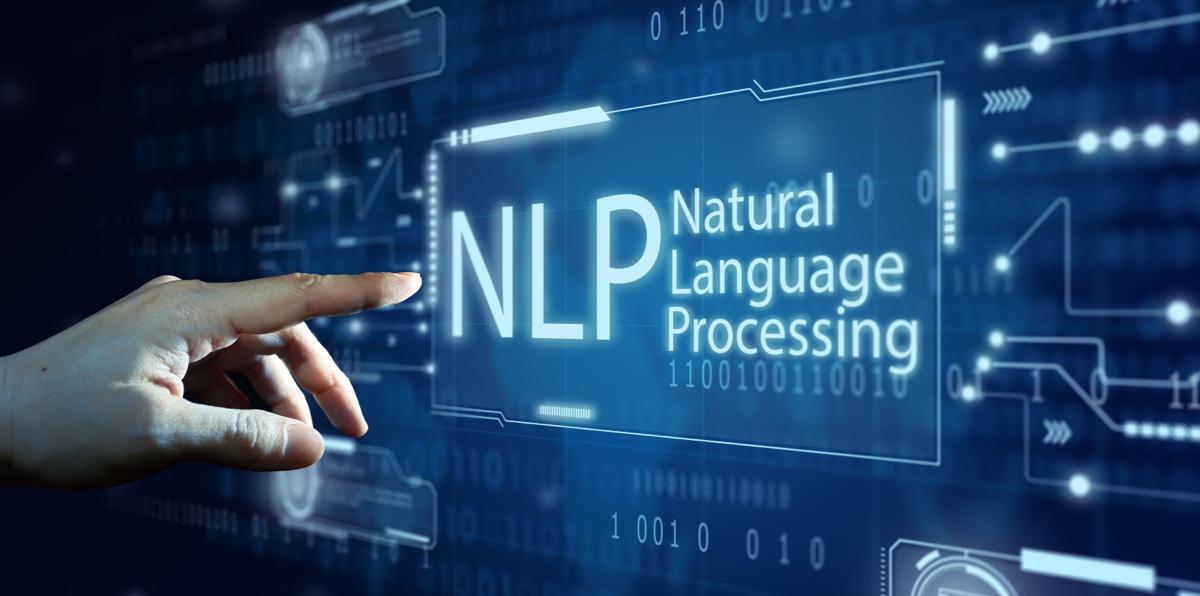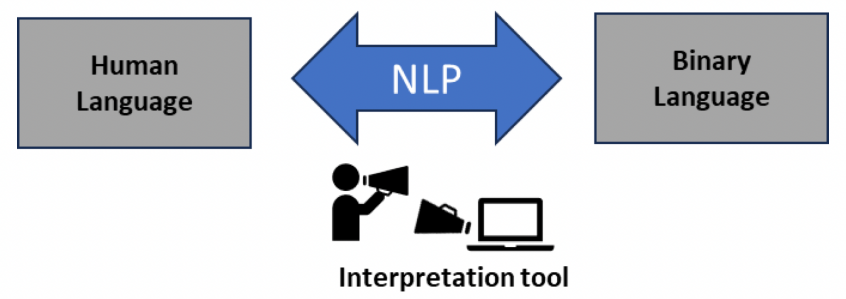31 Aug NLP in the area of health

Article by Natalia de la Figuera – Co-founder and COO of GENESIS Biomed.
• Natural language processing (NLP) systems are a key branch of artificial intelligence that allows machines to understand, interpret and generate human language in a more sophisticated way.
• NLP will allow important advances in all fields, and especially in the field of health.
• It will have a direct impact on better diagnosis and prevention of diseases and will allow for more precise and personalised care.
Human languages have been the primary means of communication since the dawn of civilisation. The complexity and richness of languages allow for the expression of emotions, thoughts and knowledge. The ability of humans to communicate with each other has been a fundamental pillar of human progress.
In contrast, the binary communication system is the native language of machines. Based on two symbols, 0 and 1, binary is the basis of computer language. Every number and character that computers process and store is translated into a combination of these binary digits. The simplicity of the binary system has enabled the development of modern digital technologies and is the cornerstone of computer science and artificial intelligence.
The convergence of these two systems began with the invention of computers and programming. Programmers, using programming languages, translate human instructions into binary codes that machines can understand and execute. As technology advances, human language and the binary communication system of computers have inseparably intertwined their paths, triggering a veritable revolution in the way we communicate and understand the world.

This interaction has led to the flourishing of artificial intelligence, a discipline that seeks to provide machines with the ability to learn and reason like humans. Natural language processing (NLP) systems are a key branch of artificial intelligence that allows machines to understand, interpret and generate human language in a more sophisticated way. These advances have led to improvements in speech recognition, machine translation and contextual understanding, bringing the worlds of human and binary language even closer together.
However, convergence between the two systems is not without its challenges. Human languages are inherently complex and ambiguous, making accurate understanding difficult for machines. Not only does the NLP have to be able to break up written or spoken text into smaller units, but it must also take into account morphological, syntactic and semantic aspects that lead as far as possible to an unambiguous and correct interpretation of the text. Once the NLP has processed and understood the text, it can perform various tasks, such as answering questions, summarising information, extracting relevant information, translating the text into another language or generating natural language responses.
The use of NLP covers all areas and its use in health, in addition to tasks applicable to any other area such as translation or synthesis of information, has many other applications such as:
Extraction of clinical information: NLP can be used to extract relevant information from electronic medical records, radiology reports, clinical notes and other medical documents.
Classification of diagnoses: NLP can help to automatically classify and categorise medical diagnoses and conditions useful for epidemiological analysis, identification of disease patterns and early detection of outbreaks or epidemics.
Virtual assistants and medical chatbots: Virtual assistants and chatbots can interact with patients and provide basic medical information.
Sentiment analysis of patient feedback: NLP-based sentiment analysis can help to understand patients’ opinions and experiences or to interpret a person’s pain scale.
Detection of adverse drug effects: NLP can be used to analyse reports of adverse drug effects and detect patterns and trends that could indicate safety concerns.
In conclusion, NLP will allow important advances in all fields, and especially in the field of health. Above all, it will have a direct impact on better diagnosis and prevention of illnesses, as well as allowing for more precise and personalised care. But like all digital tools, it is essential that they are subject to the critical thinking and common sense of doctors and health professionals who do not accept information without barriers and question it objectively and reflectively; on the off-chance that we end up like those people who, following Google maps, ended up trapped in a mire …


